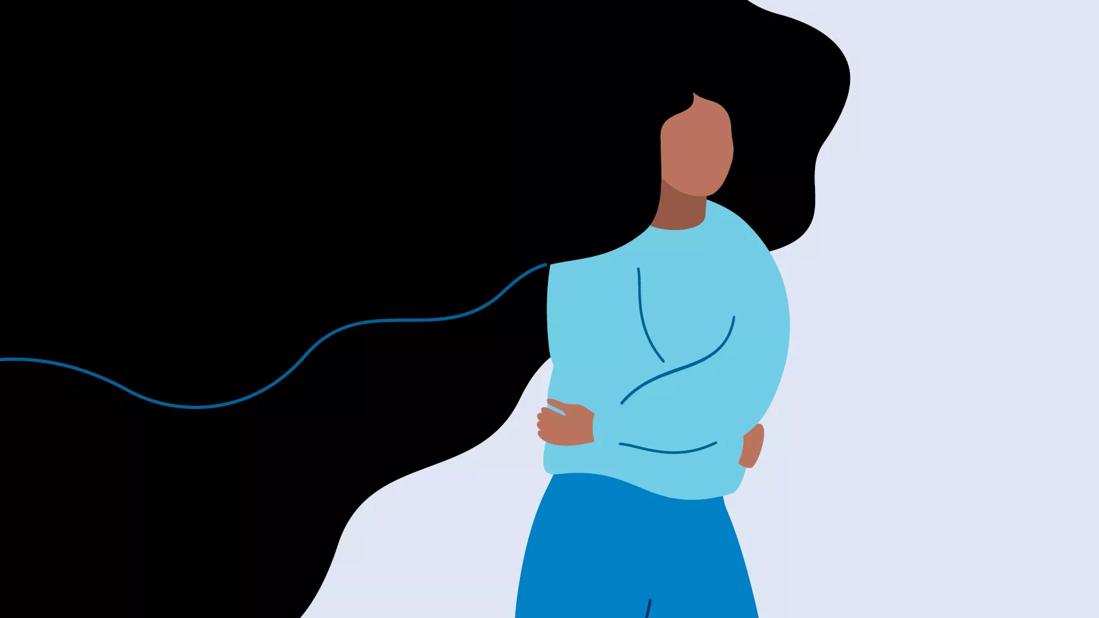If you’ve gone through two courses of medications, you may have this kind of depression

If you’re living with depression, you know that it can be difficult to take the first step toward treatment. But what if you’re taking the steps to help yourself and that dark cloud still continues to linger?
Advertisement
Cleveland Clinic is a non-profit academic medical center. Advertising on our site helps support our mission. We do not endorse non-Cleveland Clinic products or services. Policy
At a certain point, a psychiatrist may diagnose you with treatment-resistant depression (also known as refractory depression) — a type of depression that continues to resist any commonly used therapies or medications you throw at it. If you’re struggling with this kind of depression, you’re certainly not alone. One-third of people with depression experience this kind of persistent depression.
Psychotherapist Anne Posey, LMHC, explains what we know about treatment-resistant depression so far and options for coping.
Keep in mind, “treatment-resistant” does not mean “untreatable.”
Treatment-resistant depression is generally defined as a type of depression that doesn’t respond to treatment after a certain amount of time. Specifically, this is when a person doesn’t have a significant improvement after two courses of different antidepressants. According to Posey, a course of antidepressants would be prescribed for at least six weeks before deciding they aren’t effective.
This doesn’t mean that it can’t be helped over time through other techniques.
You may be wondering: “How do I know if I have depression or treatment-resistant depression?” The truth is, the best way to untangle this answer is by working together with your psychiatrist and healthcare team to help understand your medical history.
“Depression itself is more than just having a bad day,” says Posey. “It’s when you feel depressed every day, almost all day for a period of longer than two weeks.” But then treatment-resistant depression, you’ll see a combination of different effects on your routine and response to medications.
Signs of treatment-resistant depression can include:
Advertisement
The diagnosis of different types of depression isn’t all black and white. But there are certain things we’re continuing to learn. If you’ve noticed signs of treatment-resistant depression in yourself and want to pursue a diagnosis, your therapist and psychiatrist will want to take different factors into consideration.
To determine if you have treatment-resistant depression, you may be asked:
“This is going to help us answer the questions like, ‘Is this biochemical? Or could this be a product of what’s going on in your environment?’ Or maybe it’s both,” says Posey.
It’s also important for your healthcare providers to get a concrete timeline for your treatment. This will help them determine if your medication or therapy is helping or not. Plus — don’t try switching your medications too soon — many of the first-line antidepressants take several weeks before you notice any effects.
In some cases, treatment-resistant depression can be a mask worn by a different culprit. If it turns out you have a different condition completely, antidepressants will be less effective in relieving these symptoms. That’s why talking to your psychiatrist and healthcare provider is important so they can identify the cause and appropriate treatment.
Advertisement
“Your doctor will want to get a good health history from you,” says Posey. “It may be determined that what we are actually dealing with isn’t depression, maybe it’s bipolar disorder.”
They’ll also want to take into consideration any other mental health conditions you may have — like anxiety — to make sure the medications aren’t interfering with each other.
Depending on your diagnosis and your previous antidepressants, your psychiatrist may change your medication or introduce a new type of therapy to see how you do.
Posey says initial recommendations may include:
“Another holistic approach could be avoiding things that can make depression worse, such as using substances like alcohol,” says Posey.
If a change in therapy, antidepressants or lifestyle still aren’t helping, there are still other ways to manage treatment-resistant depression.
Other treatment methods that are available for people with treatment-resistant depression include:
Advertisement
The important thing to remember is that there are options out there. However, these therapies and procedures should only be considered after your psychiatrist has given enough time for antidepressants to work.
If your depression doesn’t respond to treatments, it can be hard to know how to find relief. Switching medications and different therapies can be jarring, so it’s important to find ways to keep yourself grounded.
Alongside your therapy and medications, you can also find ways to take tiny steps in your personal life like:
Advertisement
It’s important to also know the signs that indicate you’re heading in the right direction. Healing from treatment-resistant depression can be a slow process for many, but it’s important to take note of small improvements.
“As someone improves, we would want to see their sleep stabilize, and maybe their appetite and energy increase,” Posey explains. “Or they’re having the ability to get up and do the things that they enjoy doing.”
Whatever treatment or therapy option you choose, treatment-resistant depression affects every person a little differently. So, it’s important to take note of how your mental health is changing and how it may require new solutions. Talk to your psychiatrist or healthcare provider to learn more about the best treatment options for you.
If you or someone you know needs help, reach out to a mental health expert or connect with a resource or support group, such as:
Learn more about our editorial process.
Advertisement

Slight increases are somewhat common from either the medication or changed habits

Some medications may result in a few lost pounds, but weight gain is far more common

The medications target different chemicals in your brain to improve mood

Both medications are first-line treatments for depression and other mood disorders

Sitting near a light box for about half an hour a day can help treat this form of fall/winter depression

Light therapy can boost sleep and help fight depression

People with high-functioning depression may not seem depressed on the outside, but the condition can cause turmoil on the inside

More than just ‘deep sadness,’ this complex condition is often a whole-body experience

If you’re feeling short of breath, sleep can be tough — propping yourself up or sleeping on your side may help

If you fear the unknown or find yourself needing reassurance often, you may identify with this attachment style

If you’re looking to boost your gut health, it’s better to get fiber from whole foods